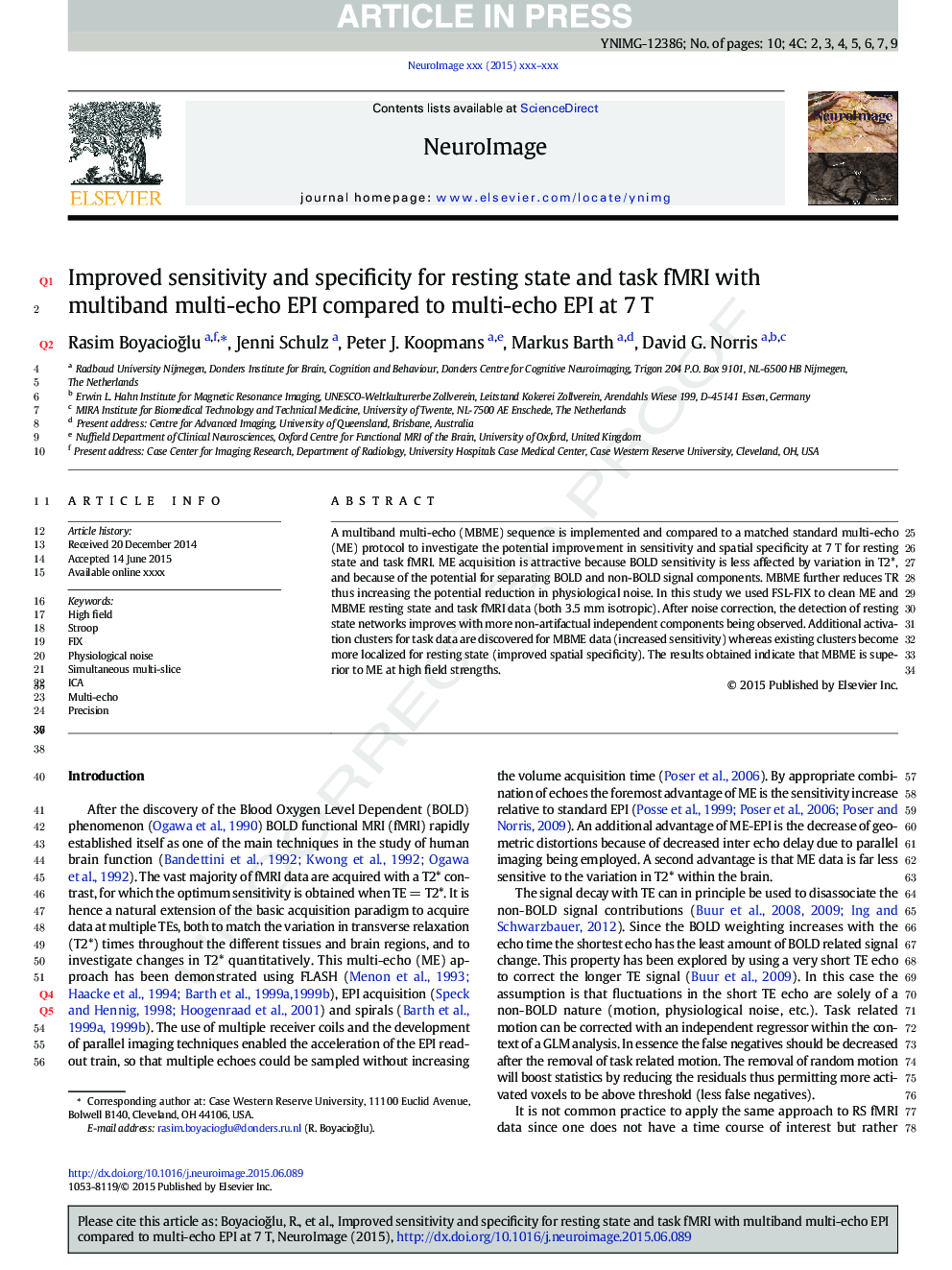| Article ID | Journal | Published Year | Pages | File Type |
|---|---|---|---|---|
| 6024854 | NeuroImage | 2015 | 10 Pages |
Abstract
A multiband multi-echo (MBME) sequence is implemented and compared to a matched standard multi-echo (ME) protocol to investigate the potential improvement in sensitivity and spatial specificity at 7Â T for resting state and task fMRI. ME acquisition is attractive because BOLD sensitivity is less affected by variation in T2*, and because of the potential for separating BOLD and non-BOLD signal components. MBME further reduces TR thus increasing the potential reduction in physiological noise. In this study we used FSL-FIX to clean ME and MBME resting state and task fMRI data (both 3.5Â mm isotropic). After noise correction, the detection of resting state networks improves with more non-artifactual independent components being observed. Additional activation clusters for task data are discovered for MBME data (increased sensitivity) whereas existing clusters become more localized for resting state (improved spatial specificity). The results obtained indicate that MBME is superior to ME at high field strengths.
Related Topics
Life Sciences
Neuroscience
Cognitive Neuroscience
Authors
Rasim BoyacioÄlu, Jenni Schulz, Peter J. Koopmans, Markus Barth, David G. Norris,
